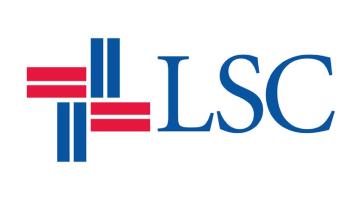Table of Contents
Compensatory Education: When Special Education Wasn't Offered

|
Compensatory Education: When Special Education Wasn’t Offered |
If your school district does not give your child the special education services they are supposed to, you may be able to get what is called “compensatory education.”
The Individuals with Disabilities Education Improvement Act—IDEIA—is a federal law that requires schools to give children with disabilities a “free and appropriate public education.” This means that schools have to give special education services to children with certain disabilities. IDEIA makes rules for how schools must provide special education services.
Special education services include testing for special education, and services for children who have behavior or learning problems that show they might have a disability.
|
When Can Your Child Receive Compensatory Education? |
There are two kinds of compensatory education:
§ compensatory special education, and
§ compensatory regular education.
Compensatory Special Education Services
If you are the parent, you may be able to get compensatory special education services if the school didn’t give your child the correct amount or kind of special education services. Here are some examples.
§ The school district did not provide all or part of the IEP’s special education minutes. “IEP” is the Individual Education Program for your child.
If a school doesn’t give your child all of the special education services listed in her IEP (including academics, speech therapy, language, physical therapy, occupational therapy, social work, and any other related service or therapy), you may be able to get compensatory education. For example, if your child’s IEP says she should get 60 minutes per week of speech therapy, and she gets no speech therapy for three weeks, your child should get 180 extra minutes (60 minutes per week times three weeks) of speech therapy to make up for that time she missed. This is compensatory special education. It is not acceptable under IDEIA for the school district to try to say that they don’t have to provide speech therapy if the speech teacher is ill or absent.
§ You asked the school, in writing, to test your child for special education. The school district did not follow the legal timelines. Your child qualified for special education.When you ask the school to test your child for special education, the school has 30 days to have you, the parent, sign a form that gives the school permission to test your child. Then the school district has 60 days to test (or “evaluate”) your child and hold an eligibility conference. An eligibility conference is a meeting where the person who did the evaluation explains the results of your child’s testing to you and to the school. If a school took too long to complete your child’s testing, and your child qualifies for special education, then your child missed out on getting some special education services. You should be able to get compensatory education services to make up for the time that your child missed because the school didn’t finish the testing on time. It is not acceptable for the school to try to say that there were too many children to test and they couldn’t get it all done in time. Schools must follow IDEIA timelines (except during summer vacation).
Compensatory Education For Regular Education Services
If your child is a special education student, she can also get compensatory education services if the school illegally takes away her regular education services. Regular education is the time during the school day when your child is with the general student population. If your child’s IEP says she is supposed to be in regular education for part of the day and in special education for part of the day, the school may owe your child compensatory education for any time that she was illegally kept out of regular education classes or activities. Here are some examples.
§ Your child has a disability and gets special education in school. The school district suspends your child for more than 10 days and doesn’t hold a manifestation hearing.
A manifestation hearing is an IEP team meeting that determines whether your child’s behavior for which he was suspended is related to her disability. Schools must have a manifestation hearing when a child with a disability gets suspended for more than 10 days total in a school year.When a school suspends a special education student for more than 10 days in one school year, they have to have a manifestation hearing. Sometimes schools have manifestation hearings too late, after a child has been out of school for more than 10 days. If the school has a manifestation hearing late, and the IEP team decides that the behavior was related to her disability, then the child is entitled to compensatory regular education for all the regular education time she missed (above 10 days out of school), as well as compensatory special education for all of the special education time she missed.
§ A school district tells you that your child is a behavior problem and cannot come back to school until you have her tested by a psychiatrist or psychologist.
It is illegal for school districts to put children out of school for an unlimited period of time because they are having behavior problems. This is different from when your child is suspended for a specific incident. A school district may, in some cases, give a child a long-term suspension for a behavior incident, like a fight. But a school district may not tell you that your child cannot come back to school because the school cannot handle the child’s behavior. If this happens to your child, she may be entitled to compensatory regular education.
|
What Do Compensatory Education Services Look Like? |
There are different kinds of compensatory education. You may have to negotiate with the school to find the type of compensatory education that will be best for you and your child.
Many school districts take the position that a student is not entitled to compensatory education for the exact number of hours or minutes they were denied a free and appropriate public education. Often parents must compromise to agree on a compensatory education award that is fair and not overly burdensome for the child.
Compensatory education services should not be services that your child would be able to receive anyway. For example, if all students in the school district are allowed to go to summer school, summer school cannot be compensatory education for your child.
Here are examples of different kinds of compensatory education school districts may offer:
§ One-on-one tutoring by a teacher after school or on weekends. This usually takes place at a library or a McDonald’s near your home (this is also called “homebound tutoring”);
§ Summer school, after-school or other education programs that your child would not otherwise be allowed to attend;
§ Extra in-school time for speech, language, physical therapy, social work, or other services to make up for minutes your child missed.
|
How Does a Parent Ask For and Schedule Compensatory Education? |
You must request compensatory education within two years of the denial of services. There are several ways to ask for compensatory education:
§ In a due process complaint or a child complaint to the Missouri State Department of Elementary and Secondary Education.
§ At an IEP meeting. Make sure that the IEP Chair writes down the compensatory education minutes in the new IEP so that there is proof. If the IEP team disagrees about your child receiving compensatory education, you can file a due process complaint or a child complaint.
Scheduling Compensatory Education
For one-on-one tutoring, the tutor can provide tutoring to your child at times convenient for you, your child, and the tutor. The school will tell you who your child’s tutor will be, and the tutor will call you to set up a schedule. Usually the tutor is also a teacher, so she will need to schedule the tutoring hours after school or on weekends. But she will work with you to find times that are best for you.
Summer school or after-school programming can be scheduled at an IEP meeting or other school meeting.
Notice
Prepared by Missouri legal aid lawyers. Some material used with permission of Pine Tree Legal Assistance. March, 2006. Sometimes the laws change. We cannot promise that this information is always up-to-date and correct. If the date above is not this year, call us to see if there is an update. We provide this information as a public service. It is not legal advice. By sending you this information, we are not acting as your lawyer. Always consult a lawyer, if you can, before taking legal action. Sorry, but we cannot respond to website requests for help. If you believe you have a legal problem we can help you with, call your local legal aid office.

